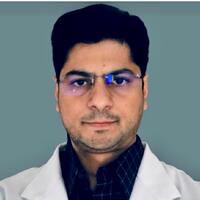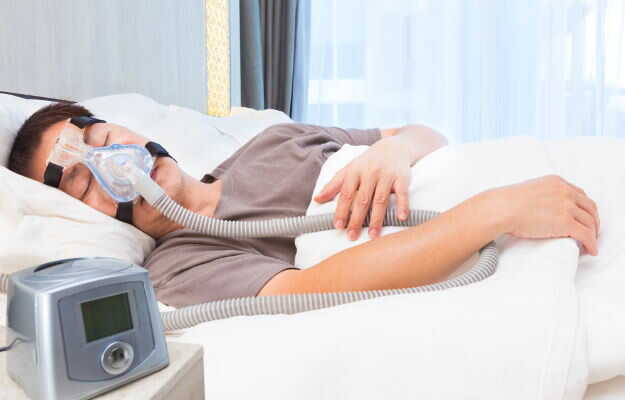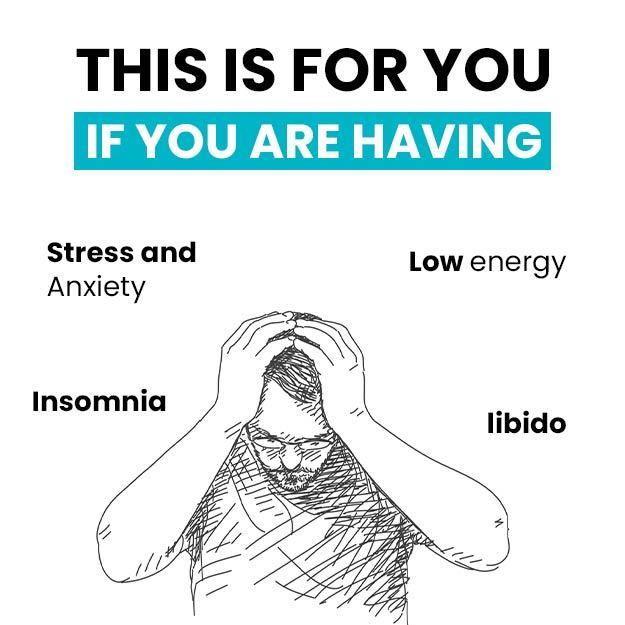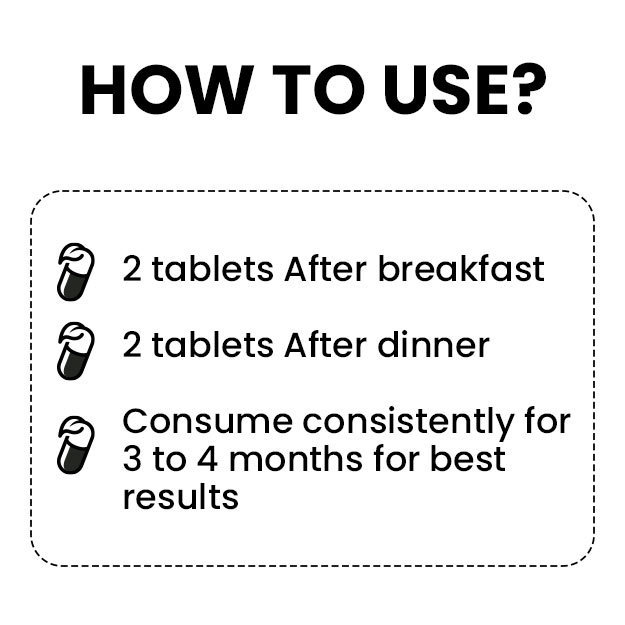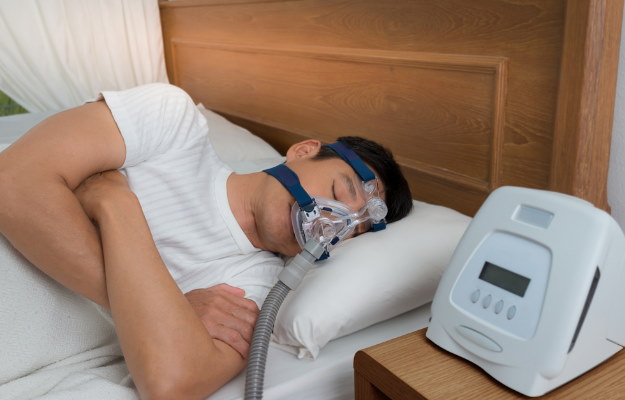Central sleep apnea (CSA) is a disorder in which breathing stops repeatedly during sleep. This happens because the brain is unable to send proper signals to the muscles that control breathing. Having central sleep apnea can cause problems such as difficulty sleeping or focusing. Important causes of central sleep apnea include conditions such as heart failure or stroke. Treatment for central sleep apnea includes treating the underlying condition and using a device to help with breathing.
Please click on this link to know the sleep disorder treatment.
Today in this article, you will learn about the symptoms, causes, and treatment of Central Sleep Apnea -
(Read More - Sleep Disorders treatment)
Central Sleep Apnea Symptoms
Having central sleep apnea can cause breathing problems to sleep problems. Apart from this, many symptoms of central sleep apnea can be seen. Come, let us know in detail about the symptoms of central sleep apnea -
Trouble focusing
Central sleep apnea not only causes sleepiness throughout the day but also makes it difficult to concentrate on any task. Along with this, there are ups and downs in the mood. Apart from this, memory starts decreasing. Along with this, there is a problem with exercising.
(Read More - Effects of improving sleep on mental health)
Day sleep
Due to central sleep apnea, there is excessive sleepiness throughout the day. This is called hypersomnia. In this situation, one can fall asleep while working, watching TV, and even driving. Many times, as soon as you wake up in the morning, there is a complaint of severe headache. If you see all these symptoms, definitely contact the doctor.
(Read More - Why we wake up in the middle of the night)
Trouble sleeping
Central sleep apnea can cause sleep problems. It is also called insomnia. Sometimes the patient also becomes irritable due to this condition. In such a situation, the doctor should be contacted before the condition worsens.
(Read More - Sleepwalking treatment)
Sudden awakening
Sudden falling asleep due to difficulty in breathing is also a symptom of this. If this happens repeatedly, you should consult a doctor. At the same time, in some cases, loud snoring sounds start coming into sleep.
(Read More - Sleep paralysis treatment)
Shortness of breath
Due to central sleep apnea, symptoms like not breathing for a few seconds and abnormal breathing patterns can be seen while sleeping. If the process of breathing repeatedly stops while sleeping, then the doctor should be seen without delay.
(Read More - Sleep Deprivation treatment)
Central Sleep Apnea Causes
The problem of central sleep apnea occurs when the brain fails to properly signal the breathing muscles. Central sleep apnea can be caused by many conditions that affect the ability of the brainstem. There are many types of central sleep apnea, accordingly, its causes can also be different. Come, let us know in detail about the causes of central sleep apnea -
High altitude periodic breathing
If someone is leaving at a higher height, a Cheyne-Stokes breathing pattern may also occur. Many people can have trouble breathing when they go to an altitude of 2,500 meters (8,000 feet) or more, usually. Alternating rapid breathing (hyperventilation) and under breathing can occur due to the change in oxygen at a high altitude.
(Read More - Sleep talking treatment)
Idiopathic (primary) central sleep apnea
The cause of this type of central sleep apnea has not yet been revealed. This is a very unusual type of situation.
(Read More - Sleep chart by age)
Medical condition-induce apnea
Serious diseases such as heart failure, Parkinson's disease, stroke, and kidney failure can cause central sleep apnea.
(Read More - How to fall asleep)
Treatment-Emergent apnea
About 5% to 15% of people who are given positive airway pressure during treatment for obstructive sleep apnea may develop central sleep apnea. This condition is called treatment-emergent apnea.
(Read More - Causes of Insomnia in Females)
Drug-induced central sleep apnea
Some opioid medicines such as morphine (MS Contin, Kadian), oxycodone (Roxicodone, Oxycontin), or codeine can affect breathing. Due to these, the process of breathing can be abnormal, there can be a decrease or increase in the regular pattern of breathing or the breath can stop for some time.
(Read More - What is Deep Sleep)
Cheyne-Stokes breathing
This condition occurs when the breath becomes fast, slow, stops, and starts again. This complete cycle can last from 30 seconds to 2 minutes. Cheyne-Stokes breathing is common in people who have had congestive heart failure or a stroke.
(Read More - Sleep Anxiety Treatment)
Central Sleep Apnea Treatment
The treatment of central sleep apnea depends on its cause. If this problem is due to heart failure, then medicines can be taken for this or if CSA has occurred due to opioid medicines, then these medicines can be stopped. Come, let us know in detail about the treatment of central sleep apnea -
Lifestyle changes
The effects of central sleep apnea can also be reduced by making lifestyle changes. For this, to control the weight. Abstain from drinking alcohol. There is a need to get enough sleep. Apart from this, instead of sleeping on the back, one should sleep on the side.
(Read More - Which Vitamin Deficiency Causes Insomnia)
Medicines
Medications that stimulate breathing, such as acetazolamide (Diamox) and theophylline (Theocron), can be taken to stabilize the breathing pattern in people with central sleep apnea. These medicines can help in breathing properly while sleeping.
(Read More - Which Foods Help You Sleep Better)
Remade System
The REMED system is a device that can aid in the treatment of serial central sleep apnea. For this, doctors place this device under the skin in the chest, which helps in triggering the nerves and moves the diaphragm while breathing. It also monitors respiratory signals while sleeping and also helps with regular breathing patterns while sleeping.
(Read More - Jet lag treatment)
Continuous Positive Airway Pressure (CPAP)
CPAP can be beneficial for all patients with sleep apnea, especially those with central sleep apnea caused by heart failure. The CPAP machine is a mask worn over the nose while sleeping. Through this, air reaches the nose and mouth continuously. The air pressure prevents breathing from getting blocked or stopped. In addition to the CPAP machine, adaptive servo-ventilation (ASV) and bilevel positive airway pressure (BPAP) can be used.
(Read More - Ayurvedic medicine for Insomnia)
Nasal spray or breathing strips
If someone has sinus problems or a blocked nose, nasal spray or breathing strips can be used to maintain airflow.
(Read More - Homeopathic medicine for Insomnia)
Reduction in opioid drugs
If opioid medications are causing central sleep apnea, the doctor may gradually reduce the dose of these medications.
(Read More - Acute Insomnia treatment)
Treatment of medical problems
Central sleep apnea is also caused by many disorders. If these disorders are treated, treatment of central sleep apnea may help. Treating heart failure can help in CSA.
(Read More - What is Sleep Hygiene)
Takeaway
Central sleep apnea is a problem in which the breathing pattern becomes abnormal while sleeping. Sometimes it is slow, sometimes fast, and sometimes the breath stops for a few seconds. During central sleep apnea, the brain is unable to properly send signals to the muscles that control breathing. Central sleep apnea can be caused by some serious problems such as stroke and kidney failure, sometimes due to going to height or due to the use of opioid drugs. Some medicines are also given for the treatment of CSA.
(Read More - Deep sleep stages)
Doctors for Central Sleep Apnea - Symptoms, Causes, and Treatment
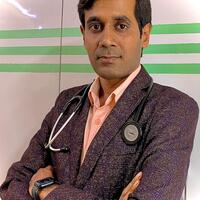
Dr. Hemant Kumar
Neurology
11 Years of Experience
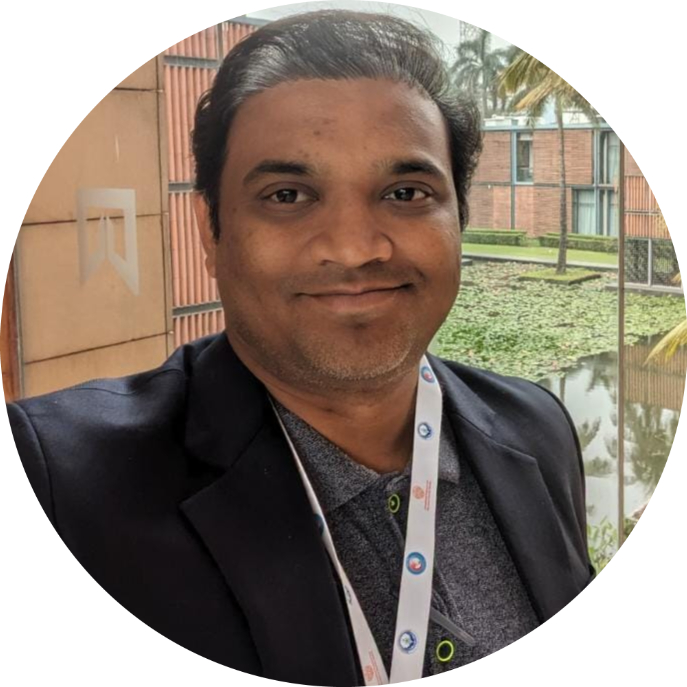
Dr. Vinayak Jatale
Neurology
3 Years of Experience
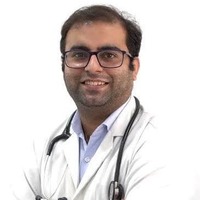
Dr. Sameer Arora
Neurology
10 Years of Experience
